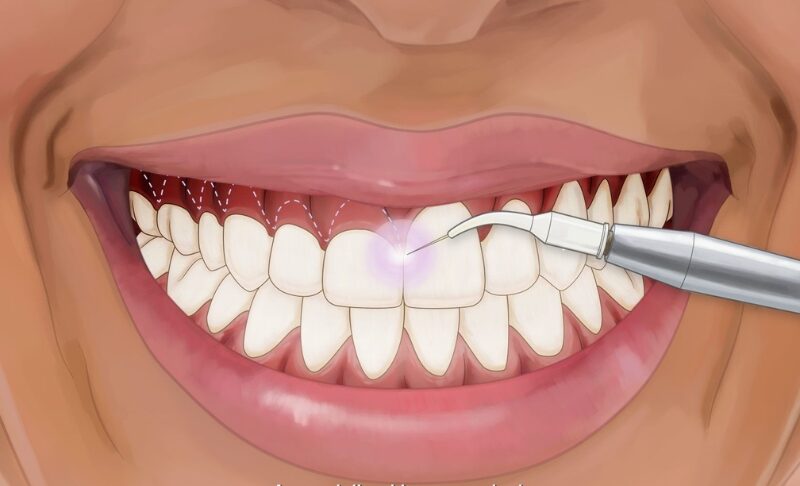
Halitosis is not just a personal issue—it can be a sign of oral or systemic disease. Research puts the estimate at 22%–50% of people with chronic bad breath, so you’re not alone. The good news: in the majority of cases, easy, science-backed measures you can implement today to resolve the condition.
Why does chronic halitosis occur?
Most cases are caused by oral biofilm (plaque)
In 80–90% of cases, bad breath starts in the mouth. The tongue and gum surfaces harbor anaerobic bacteria that catabolize proteins and release volatile sulfur compounds (VSCs)—the foul-smelling gases. The tongue dorsum and gum crevices trap food particles, which makes the situation critical.
Gum disease, dry mouth, and oral care habits
Periodontal inflammation, thick tongue coating, and xerostomia raise VSCs. Smoking, nocturnal mouth breathing, and lack of interdental cleaning play a role as well. The path is predictable; the fix is practical.
Where gut health comes into play
A subset of patients reports GI symptoms with halitosis. Some research has associated oral odor with H. pylori, but follow-up research has noted inconsistent or weak findings. If you have acid reflux, stomach pain, or bloating with your symptoms, consult your doctor.
Proven fixes that help
Daily routines you can count on
- Daily tongue cleaning (soft brushing or scraping). Studies show that tongue cleaning decreases VSCs and odor scores.
- Brush and floss once a day to disrupt plaque biofilm.
- Stay hydrated and address dry mouth etiologies (medications, caffeine, alcohol).
- Choose mouthrinses wisely. Zinc, CPC, or chlorhexidine rinses can reduce VSCs in the short term.
Dental office treatment that proves effective
A thorough oral examination detects coated tongue, infected gum, defective restorations, or decay-induced odor. Professional oral cleaning (oral prophylaxis) and tips on tongue care have been found to reduce intra-oral halitosis and gingivitis. In localized periodontitis, scaling and root planning remove deep plaque biofilm.
If you’re also struggling with mouth odor, get a dental cleaning in Penn Township to restore your oral environment and allow home care to have an equal chance.
When to go beyond the mouth
If oral and periodontal care is not enough and you have reflux, sinusitis, or GI distress, consult with your medical providers as to whether ENT or GI pathology is the issue. Evidence on H. pylori and halitosis is inconclusive; elimination of recognized infection may be helpful for some patients, but it is hardly a one-size-fits-all solution.
Long-term prevention
Simple, lasting habit
Twice-daily brushing every day, once-daily interdental cleaning, and tongue care form the foundation. Toothbrushes should be replaced every three months. Use sugar-free gum or xylitol mints to increase saliva flow when your mouth is dry. Avoid tobacco and cut back on alcohol consumption, which exacerbates xerostomia.
Nutrition and gut-friendly foods
Food rich in fiber increases saliva production and eliminates waste from your system. If you have ongoing reflux or stomach problems, addressing these might be good for your overall health, as you address bad breath first.
Book a comprehensive oral examination and teeth cleaning session at our Penn Township dental office. We will treat the root cause, fine-tune your at-home oral hygiene, and collaborate with your doctor if needed. Call today to rid yourself of bad breath and book your appointment.


